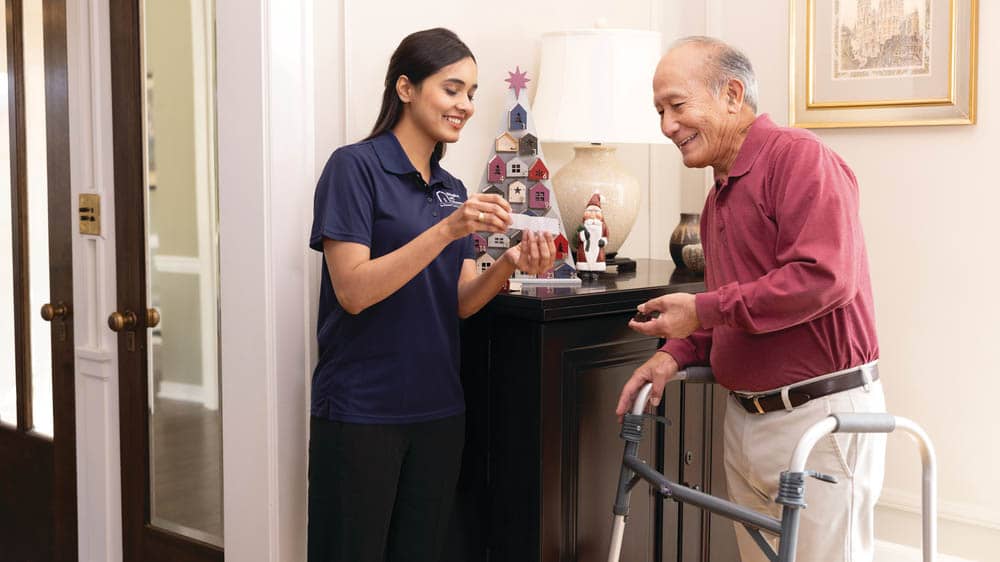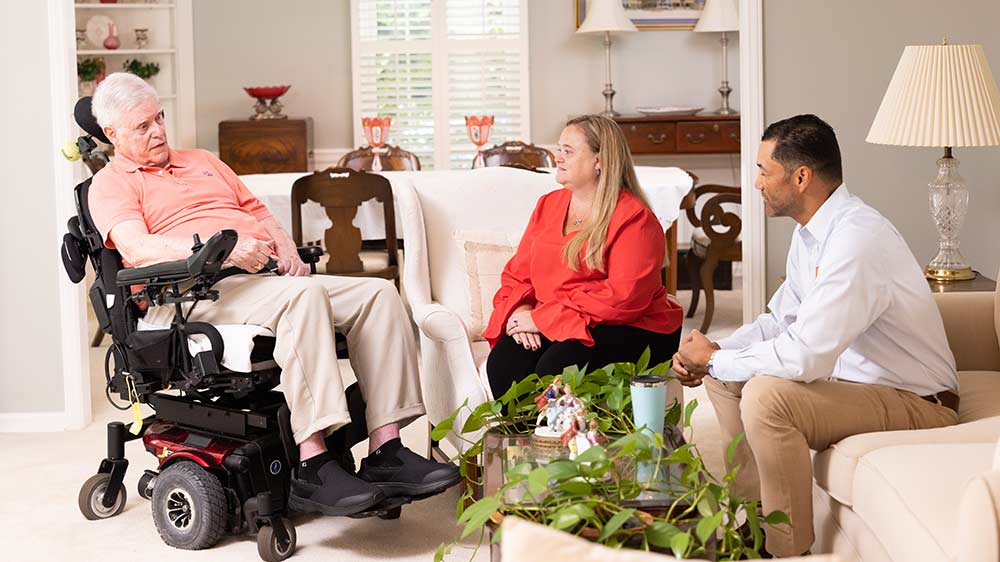

Durable Medical Equipment: A Guide for Home Use
Whether it’s due to aging or recovery from surgery or hospitalization, at some point, most people will need to use durable medical equipment (DME) in the home. DME can help maintain safety and a sense of independence, especially for the elderly. Four of the most common types of DME are shower chairs, bed rails, walkers and Hoyer lifts. These pieces can be expensive to purchase, and sometimes, renting them is a better use of resources. Here’s a look at each type, what to consider when deciding whether to rent or buy, and other things to consider when choosing each item.
1. Shower Chairs: Shower chairs are designed for use in a shower’s wet, slippery environment and provide stability and safety for those who have difficulty standing for long periods.
- Buy: If you anticipate long-term use, buying a shower chair is cost-effective. These chairs are not typically very expensive and can be customized to fit individual needs.
- Rent: For short-term recovery periods, renting might be more practical.
What to look for:
- Stability and size: Ensure the chair fits the shower space and is stable enough to support the user without tipping.
- Comfort and accessibility: Look for chairs with padded seats and easy-to-reach controls.
2. Bed Rails: Bed rails are safety bars designed to provide support and prevent falls, particularly for individuals who have difficulty moving into and out of bed.
- Buy: Bed rails are generally a one-time purchase. They’re integral for ongoing support and safety, making them a wise investment.
What to look for:
- Compatibility with the bed: Make sure the rails fit securely with the bed model.
- Ease of use: Rails should be easy to adjust and not require significant strength or dexterity.
3. Walkers: Walkers are mobility aids with a frame that surrounds the user on three sides, providing support and stability for walking.
- Buy: Walkers are often personalized to the user’s height and weight, making them more suitable for purchase.
- Rent: In cases of temporary mobility issues, renting can be a good option.
What to look for:
- Adjustability: Ensure the walker is adjustable to the user’s height.
- Wheels vs. no wheels: Consider the user’s strength and balance. Wheels can offer smooth movement but may require the user’s ability to maintain control.
4. Hoyer Lifts: Hoyer lifts are mechanical devices used to transfer patients who require assistance moving from a bed to a wheelchair or other locations, minimizing strain for both the patient and the caregiver.
- Rent: Renting a Hoyer lift is often more feasible due to its higher cost and typically short-term need.
- Buy: For long-term, progressive conditions, purchasing might make more sense.
What to look for:
- Space requirements: Hoyer lifts need enough space to operate properly.
- Weight capacity: Ensure the lift can safely support the user’s weight.
General Tips for Choosing DME
There are several things to keep in mind when considering your DME requirements at home:
- Assess your needs: Consider the duration and extent of your needs.
- Consult health care providers: They can offer personalized recommendations.
- Consider the user’s comfort: Comfort leads to more frequent use, which is critical for effectiveness.
- Research and compare: Look at different brands and models and read reviews.
- Check insurance coverage: Some DME costs might be covered by insurance, including Medicare.
How To Research DME Options
One trusted resource for finding DME nearby is Medicare’s Durable Medical Equipment Cost Compare tool. While it doesn’t provide a comprehensive guide to all DME, it does show which DME items are covered by Medicare.
People who don’t have Medicare or who want more detailed comparisons, including actual costs, user reviews and broader product ranges, might want to check multiple sources. Online medical supply stores, forums and user reviews can provide insights into different products’ performance and suitability for various needs.
Making the Best Choice for You
Choosing whether to rent or buy DME for home use depends on individual circumstances, including how long it’s needed, cost and personal preferences. Always prioritize safety, comfort and suitability to the user’s specific needs. By carefully considering these factors, you can make a decision that maintains independence for yourself or your loved one and enhances your quality of life or theirs.
How Right at Home Can Help
Professional in-home care is a valuable resource for recovery after surgery or hospitalization or when managing chronic conditions. Right at Home offers a wide range of in-home care services. Our caregivers can help your aging loved one follow prescribed dietary requirements and get to follow-up doctor appointments. They can also help your loved one keep track of medications and be alert for any signs of side effects. Caregivers can also assist with ambulation and hygiene as needed. Use our office locator to find your local Right at Home and ask for a FREE care consultation today.







